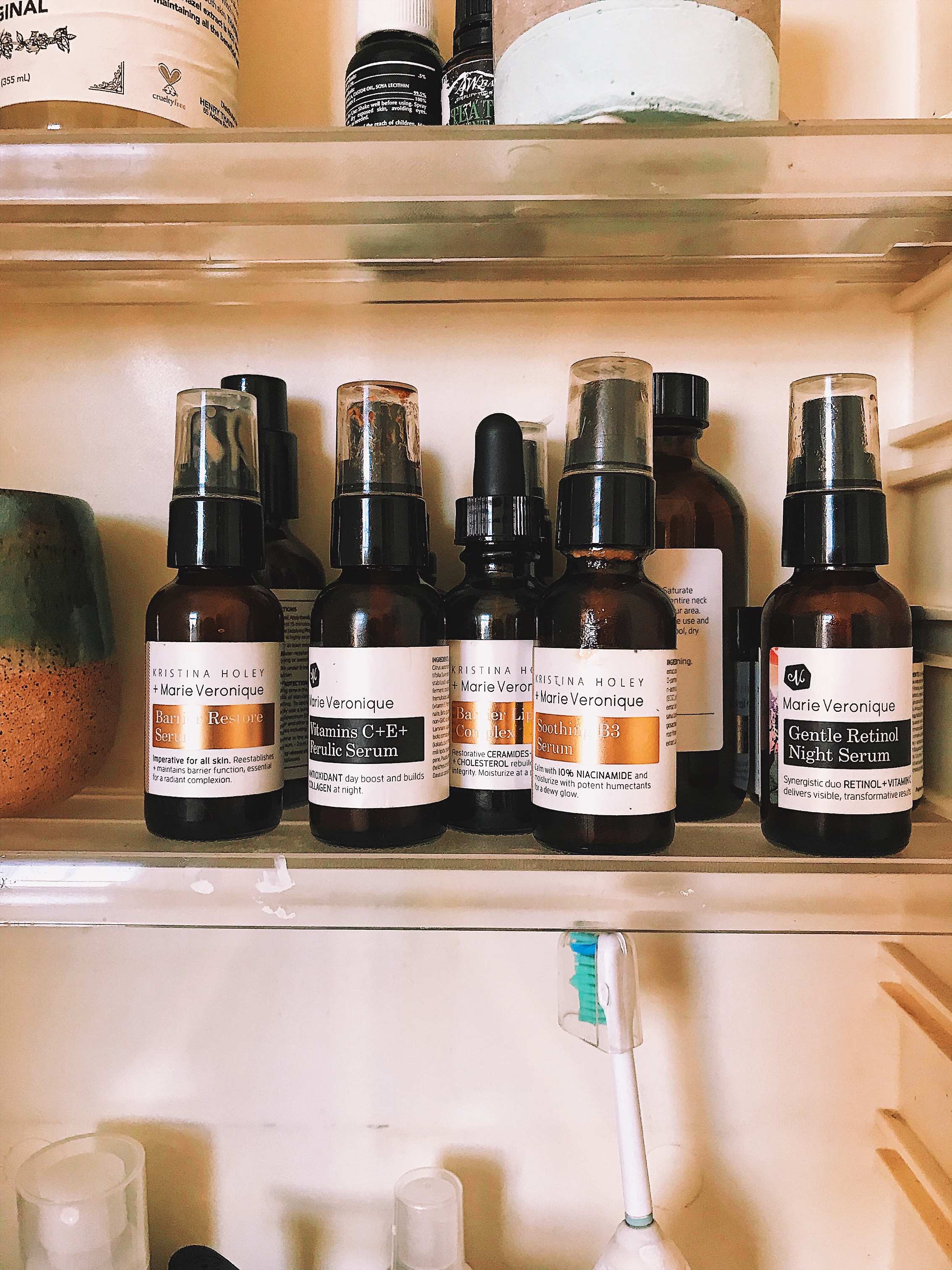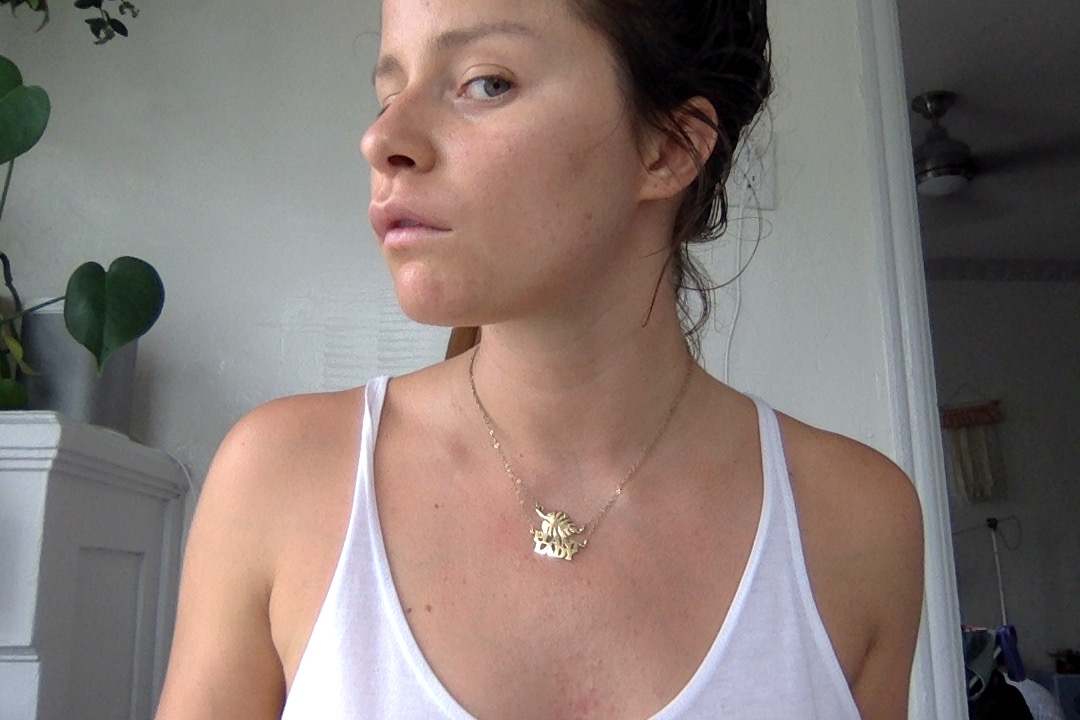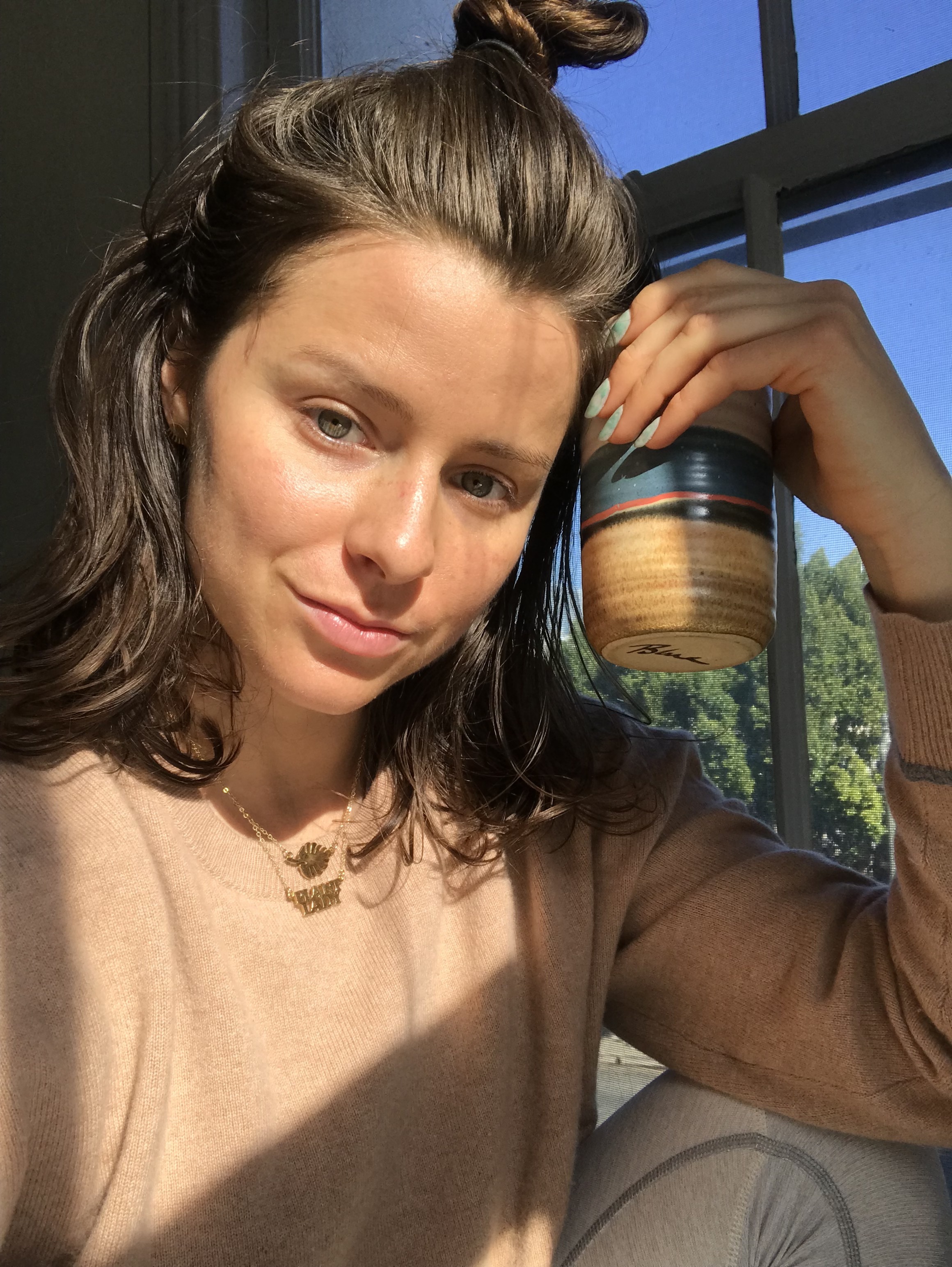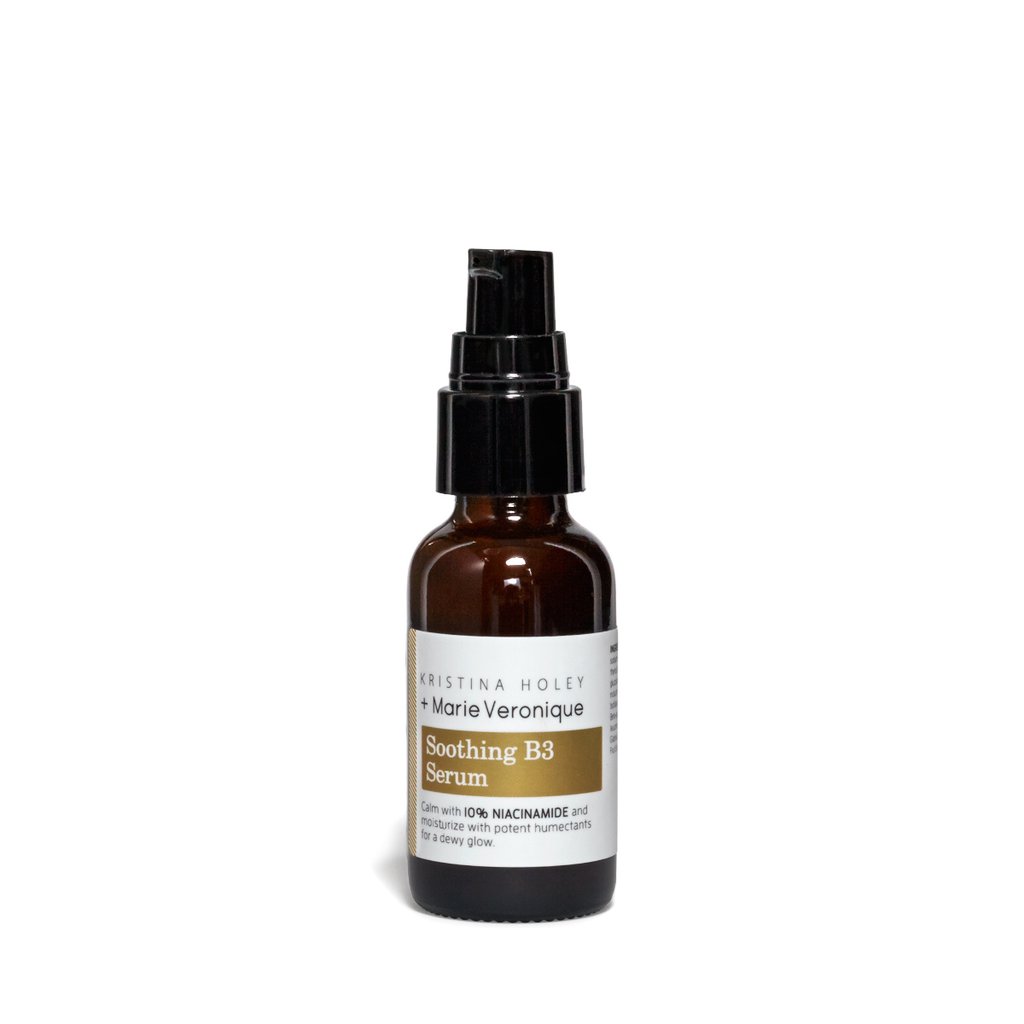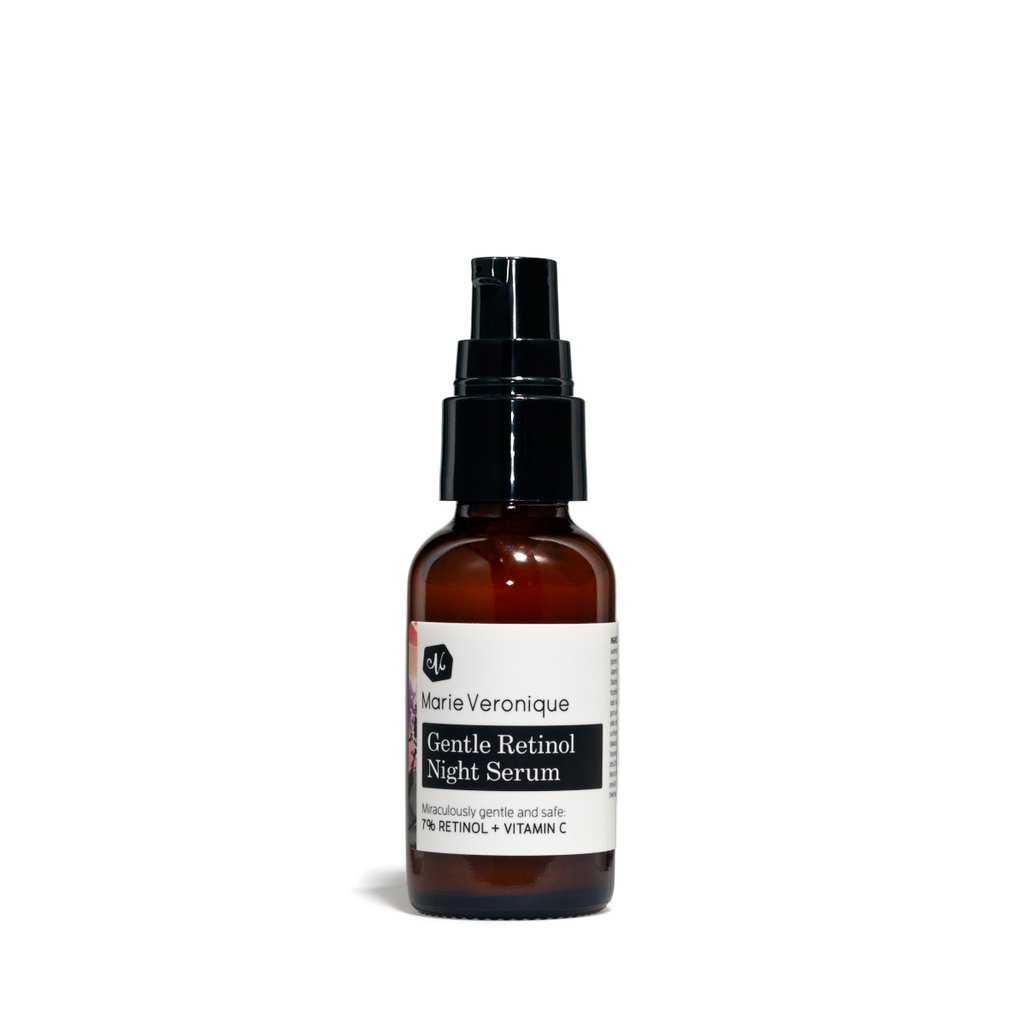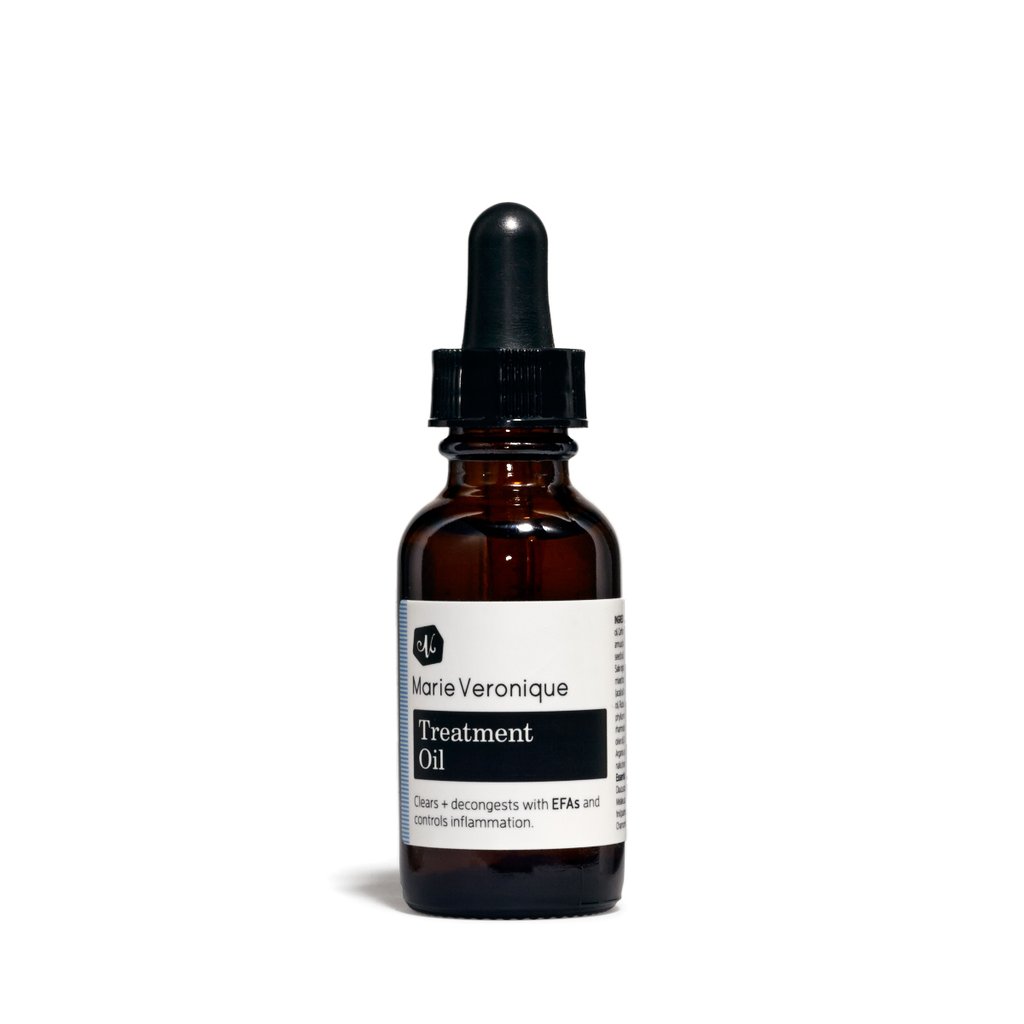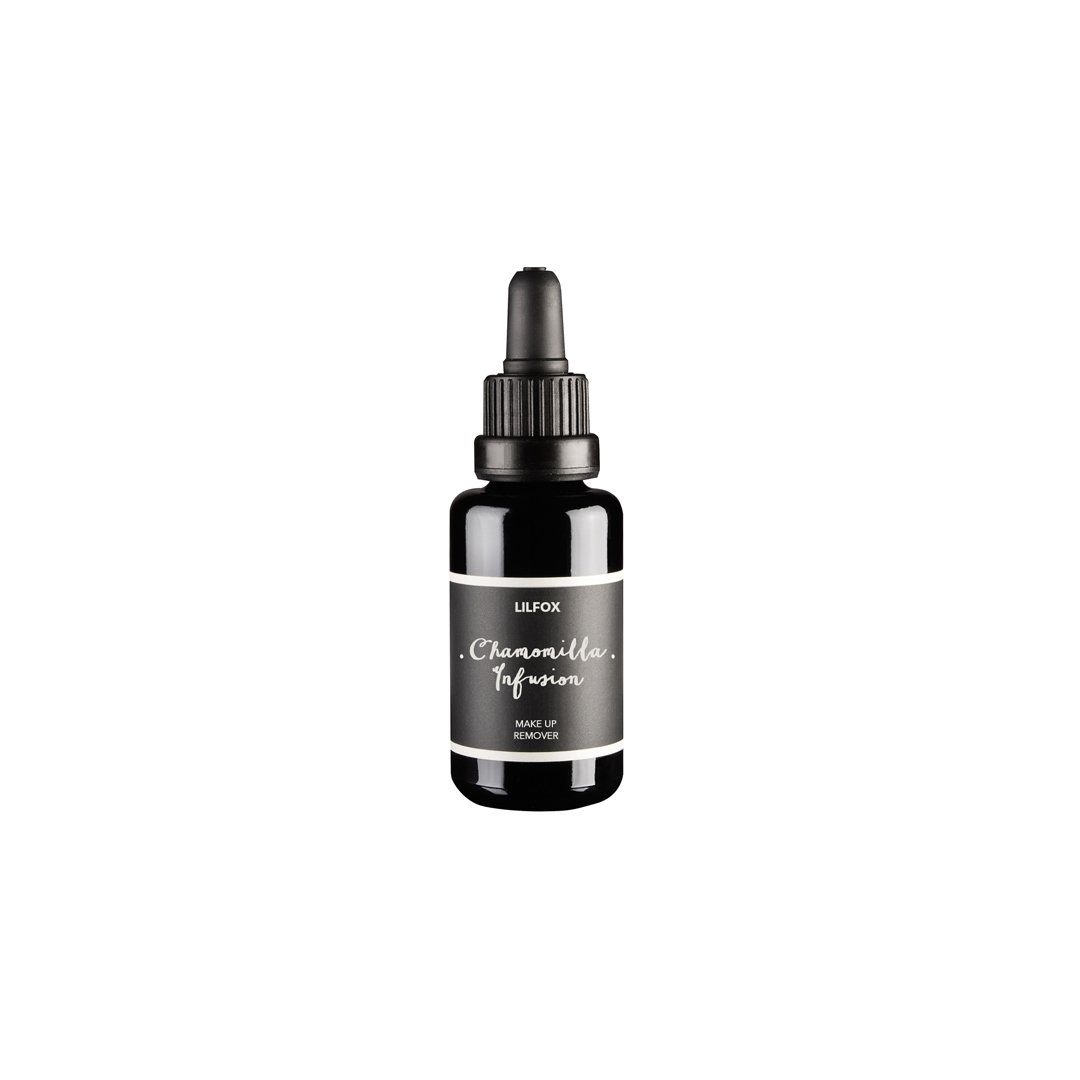Introduction to Face Oils

Note: this is not a sponsored post, I am just sharing some of my favorite brands and info about these products. If a post is ever sponsored, it will explicitly state so in the post, blog, or story due to FTC regulations.
My holy MV shelf.
Welcome to the beginner's guide to facial oils! This post will go over what facial oils are, what they do, and which ones I recommend. I even enlisted the help of Marie Veronique herself to answer some of the key question. Marie is a chemist and master at natural skincare. It's safe to say her products have changed my life. Head here to learn more information about Marie.
When I first heard about face oils, I thought, "Ha! Not for me". Growing up in the '90s, I was raised on "fat free" and "oil free" everything. From cream cheese to cleansers, the oil and fat free movement was extremely prevalent in everything from foods to skincare. I grew up using oil free everything.
I thought oils would clog pores and contribute to more acne. I even vividly remember Neutrogena commercials stating how 'oily cleansers can clog your pores!' and believing every word.
But just as your body thrives on healthy fats, your skin can too.
Facial oils are blends of oils that can fight the aging process, banish acne, moisturize skin, even complexion, protect your skin, and shrink pores. I want to make a note that they are not the same as plain essential oils.
Facial oils work by maintaining the lipid barrier function and diminishing dryness by preventing TEWL (trans epidermal water loss) and providing micronutrients and antioxidants in their natural form.
A good face oil will contain Omega-3's and Omega-6's that are essential fatty acids. "Remember, essential fatty acids are called essential because we do not make them; we must get them from our diets. When it comes to skin, we need to choose a good oil blend that we can apply daily" Marie says.
Oils can also be used for exfoliation since they can deep clean pores and remove dead skin without environmentally-damaging plastic "microbreads" or microscopic tears (which is caused by some of those microbes face washes Neutrogena sells). For some, an oil blend is enough of a moisturizer. But if you live in a extreme weather climate and your skin is dry or exposed to a lot of sun exposure, then additional moisturizers on top of oils can be helpful. Shea butter (below in the products section) is a fantastic natural moisturizer if your skin needs extra lovin'.
My Experience With Scarring + How Face Oils Healed Me
I first started using oils in July 2017 after my facialist at Cap Beauty Daily used Marie Veronique Protective Day and Night oils on me. The first thing I was attracted to was their scent. I literally stopped my facialist in her tracks and said, "WHAT WAS THAT. WHAT DID YOU PUT ON ME. I NEED IT NOW". When I left, I felt like I had a filter on my face for the next few days - I literally could see my skin glowing. I was instantly hooked.
A swollen red upper lip from a really bad electrolysis session on September 4, 2017.
I know how scarring, redness, and uneven skin can effect self esteem. I continued using Marie's oils after a skin problem I encountered in September of last year. I went in for my routine follow up electrolysis appointment and to my surprise, my previous electrolysist was gone and a new one was in her place. The company had also put in a new, stronger electrolysis machine in the former one's place. I had my upper lip worked on and it ended in severe redness, chapped skin, and puffiness that lasted for days. The electrolysist had over done it and my skin couldn't handle it. (Luckily, I found a better LA-based electrolysist, and a full electrolysis 101 blog post will be coming soon)
You can see the scarring from my electrolysis, this was 10 days after the appointment and it was still red.
My skin was subsequently red and scarred for months. I freaked out. I read forums online from people who have had lifetime scarring from electrolysis, and I remember thinking, "what have I done?" It was like I had to choose between having a beard or having red scarring. I was slightly traumatized.
My friends told me, "aw, it's not so bad! what matters is on the INSIDE!" and I thought to myself, that saying is so much easier said than done. Please no one ever say that to me again.
I continued to use the Marie Veronique oils and slowly but surely, my skin discoloration went down and the scarring cleared up. Through diligent application (2x/day for 3 months), minimum sun exposure, and healthy diet, my complexion *finally* evened out.
I went into the face oil game because I was drawn to the way it made my skin look and feel. I never loved the idea of putting on face moisturizer, no matter how clean the brand was my skin still felt greasy and I never knew how it was made and what was *actually* in it,
6 months into using the Marie Veronique face oils consistently, my skin has never looked better. My pores are smaller, I rarely get breakouts, and my complexion is even. As an unexpected result, the scarring from my PCOS hormonal acne days faded too.
Now, I use the Barrier Lipid Complex like makeup. I put it on and head out the door. It makes my skin super dew-y and glowy as you can see below. I rarely find the need to wear foundation anymore, just sometimes if I'm feelin' extra. I think there's something to be said about feeling more confident in our skin, in whatever which way makes you feel better. It doesn't matter what other people say about your skin, it's what you believe to be true about your skin.
No filter. Taken on February 28, 2018- clear skin, even tone, no scarring, but most importantly, really feeling good in my skin.
My Routine
Before going into the basics, I will quickly run down my skincare regime and what I use. I use all Marie Veronique products, and below is how I do it. At the bottom of the page you'll find a complete list of all the products mentioned in this post.
When using the Barrier Lipid Complex, make sure you are not going ANYWHERE near your eye contour area. I cannot tell you how many times I put it near my eye and then an hour later my eyes started to burn.
According to Marie, the burning is from the cholesterol. I take special care in making sure I am not applying the Barrier Lipid Complex anywhere near my eye or eyebrows.
My Marie Veronique AM routine: Splash with alternating cold and hot water, then apply serums, followed by oils. Soothing B3 Serum, Vitamins C+ E+ Ferulic Serum, Barrier Lipid Complex.
My Marie Veronique PM routine: Wash with Replenishing Oil Cleanser. If I'm wearing makeup, I use Lilfox Chamomilla Infusion makeup remover, and then apply serums, followed by oils. Vitamins C+ E+ Ferulic Serum, Gentle Retinol Night Serum, Barrier Restore Serum, Intensive Repair Serum (once weekly or if I have a blemish), and the Barrier Lipid Complex.
Facial Oils for Acne
Face oils can actually be used in the treatment of acne and clearing up skin. Oils like krill, kiwi seed, flax seed and sunflower seed oil can help improve the barrier function and dissolve congestion below the surface. Less congestion means less acne formation, inflammation, and even some age-delaying effects.
"If you have acne, breakout prone skin wants oils high in Omega-6 EFAs, because sebum (an oily secretion of the sebaceous glands) deficient in linoleic acid can clog pores. Good examples of oils for acne-prone skin are sunflower and safflower oil. Marie Veronique's Treatment Oil acid (Omega-3 EFA), especially oils with EPA (eicosapentaenoic acid) type Omega-3 fatty acids. Topical application of omega-3 polyunsaturated fatty acids, particularly those of the EPA type, attenuate UV-induced photo-damage, extrinsic signs of aging, and inflammatory skin responses. It is great for adults with acne who have aging concerns," according Marie Veronique.
What You Should Look For
Look for multi-oil blends. Just as you can't expect one food to meet all your nutritional needs, one type of oil cannot meet all of your essential fatty acid needs.
Oils rich in essential fats acid of the Omega-3, Omega-6, and Omega-9 type.
Omega 3 oils – kiwi seed, hemp seed, flax seed
Omega 6 oils – safflower, sunflower
Omega 9 oils – olive oil, macadamia nut oil, emu oil
Nutrient rich oils: high in A, C, E
Examples of oils to look for are argan oils, blackberry seed oil, rosehip seed oil.
You can buy these products separately from qualified cosmetic retailers (Mountain Rose Herbs is a good one) to make your own blends, or you can buy them pre-blended from some of the other product recommendations I share below.
Who Should Use Them
Aging adults, people who suffer from dermatitis, acne prone skin, dry skin, or uneven skin tone. Children need not use. :)
When To Apply them
I use oils in the AM and in the PM, occasionally by themselves but normally paired with a serum beforehand. Always apply oils before you apply your daily SPF.
How to Apply
Put half of a dropper into your palm, and rub them together to warm the oil up. Using your palms and starting at your cheek bones, spread the oil upwards towards your hairline. Continue this motion all over your face until all of your skin is covered, except your eyes. And don't forget your neck! Apply the oil in an upward motion on it.
So, there you have it. An intro's guide to face oils. Now that we have conquered our fear of "fat" in our foods, I think it's time we conquered our fear of putting "fats" on our face.
Do you guys use face oils? If so, which ones do you use and what do you like about them?
Products mentioned
Marie Veronique + Kristina Holey Soothing B3 Serum
$90
Marie Veronique Vitamins C + E + Ferulic Serum
$90
Marie Veronique + Kristina Holey Barrier Lipid Complex
$95
Marie Veronique + Kristina Holey Barrier Restore Serum
$110
Marie Veronique Gentle Retinol Night Serum
$110
Marie Veronique + Kristina Holey Intensive Repair Serum
$90
Marie Veronique Treatment Oil
$80
Marie Veronique Replenishing Oil Cleanser
$40
Wildcare Melon Facial Oil
$32
Mountain Rose Herbs Sunflower Oil
$7.50
LILFOX Chamomilla Infusion Make Up Remover
$28
Sun Potion Shea Butter
$27

